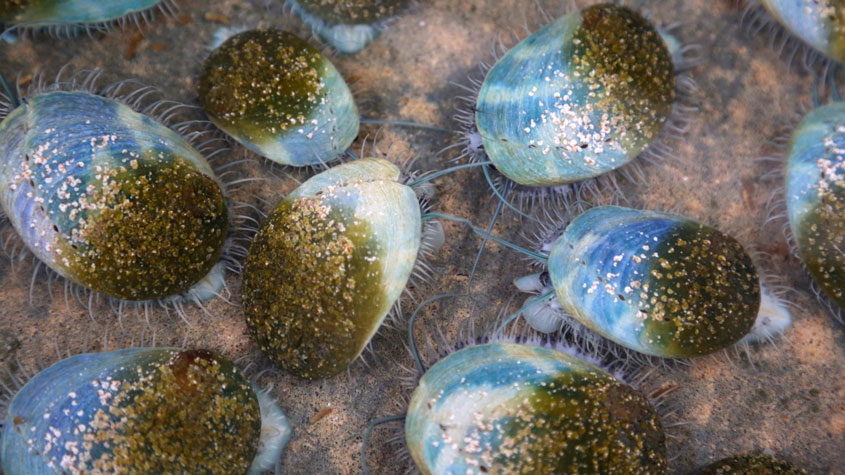Mitigating the effects of climate change on aquaculture: the case of abalone
An increase in sea temperatures from climate change can be a significant stressor for marine organisms, considerably slowing their development and growth. The South African biotech company MariHealth Solutions is developing solutions to monitor farmed abalone stocks for early detection of problems. In so doing, it is working to secure the future of marine aquaculture in South Africa.

In 1995, aquaculture rapidly became the fastest growing area of food production in the world, offering great promise in helping to improve human nutrition and global food security. Nearly three decades later, abalone farmers in the Western Cape province of South Africa are feeling the effects of climate change.
The Western Cape offers favorable environmental conditions for farming marine aquaculture species like abalone. This high-value gastropod (snail) is produced in tanks through which seawater is continuously pumped. When the water temperature exceeds 20°C, the abalone experiences heat stress. This inhibits its growth and causes health problems, as the snail expends more energy in combating its stressful environment.
MariHealth, a spin-out biotech company of the University of Cape Town, is developing solutions in aquaculture health management for abalone farming. Concretely, the company produces abalone probiotics to improve animal growth rates and disease resistance. It also offers a monitoring service to detect chronic stress levels at an early stage.
“Farmers do not know where the stress is coming from, what their animal is responding to, or how it is responding. So the idea is to help farmers assess their crop, before any issues come about,” explains Dr. Sarah Carroll, research scientist and co-founder of MariHealth Solutions.
The company is identifying potential environmental factors to reduce the stress experienced by the abalone. “Our current focus is on developing an early warning tool for assessing farmed abalone health, which is something that has not been done up until now,” Carroll says. “Our diagnostic and therapeutic solutions for farmed abalone improves practices and overall farm health,” she notes, adding that the results will improve yield for farmers and global food security in the long term.

improve the health of farmed abalones in South Africa.
(Photo: Courtesy of MariHealth Solutions)
Farmed abalone: From research to the market
During her doctoral studies, Caroll focused on identifying the molecular stress response of abalone to changing environmental conditions, with a particular focus on how elevated water temperatures and ocean acidification affects their health and growth. “This will help abalone farmers prevent any issues with their crops,” she explains, noting that the effects of climate change will result in a decline in abalone production.
Caroll has embarked on the process of commercializing her research and bringing it to the market so that aquaculture farmers can benefit from her findings. Presentation of her research at the 2019 International Marine Biotechnology Conference in Japan opened the door for her to set up MariHealth Solutions with support from Old Mutual Invest, the National Research Foundation of South Africa, and the Oppenheimer Memorial Trust.
MariHealth’s innovation, developed at the laboratory of the University of Cape Town, is protected by a range of intellectual property (IP) rights. “Trade secrets and know-how are the backbone of our health monitoring solution. Our probiotic work has had the protection of a patent for almost twenty years, allowing us the freedom and security to innovate and move towards commercialization in the abalone farming industry,” she explains.
In developing the business, Caroll is also looking to protect the company logo and brand through the registration of trademarks in key target markets. “IP protection and a robust IP strategy have enabled us to use our years of research and turn it into real world applicability and utility,” she notes.
Video: Dr. Carroll shares her commercialization journey to celebrate the 2022 World Intellectual Property.